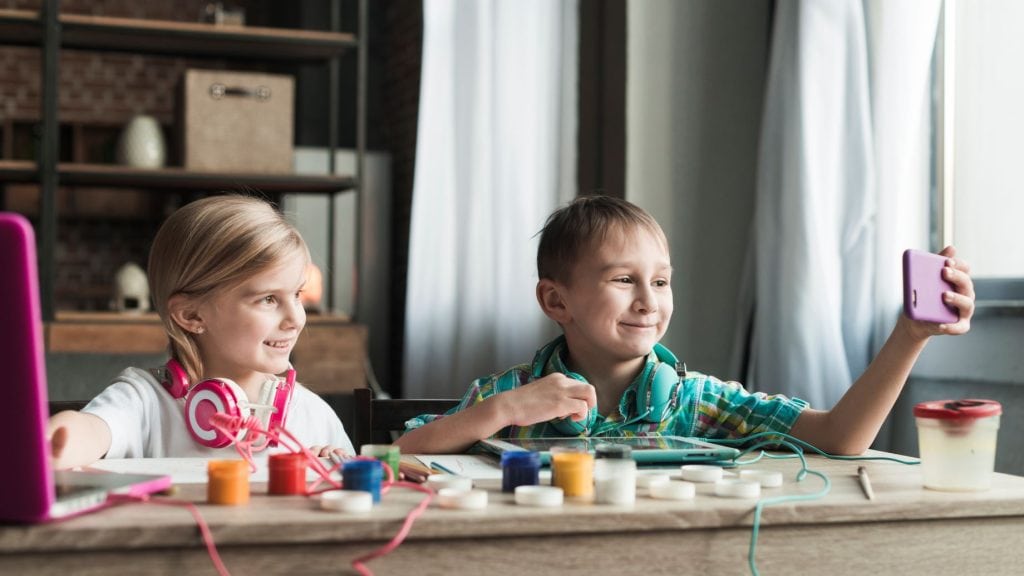School itself is not exactly the most beloved place where students want to spend their time. Some of them even develop a dislike for learning and school.
Although it is clear that going to school is necessary to gain the education required for future life and careers, parents often struggle with students who refuse to attend classes and refuse to study.
Understanding why students struggle with school is one of the first steps in addressing this problem and bringing smiles back to their faces.
Learning can sometimes be difficult, but it can also be delightful, and most importantly, extremely useful.
So, what are the reasons students struggle at school and what can be done about it?
Why don’t young students like school?
It is clear that every child has their own school experience, but various studies show that they also share many common traits, and most of them dislike school for similar, if not the same, reasons.
Lack of interest
Students are naturally inquisitive and love to explore and ask questions. In school, they encounter certain subjects for the first time, which often seem uninteresting to them. This is the main reason why many students find school boring.
Additionally, if teachers lack interaction with students, students quickly become bored during class. Learning must be engaging so that young ones look forward to acquiring new knowledge.
Fear of failure
Many students are genuinely afraid of failure and bad grades, and as a result, some of them develop anxiety. The fear of failure often grows with each setback or lower grade, leading students to feel discouraged and feel negatively towards everything related to school.
Parents can sometimes, in the best intentions, make matters worse. They often put pressure on students to study harder, not realizing they are only putting more stress on them.
That is why it’s important for parents to find out how they can help their children when it comes to academic struggles.
Routine
One of the biggest challenges for students is the routine. Used to different kinds of free activities, they enter a structured routine when they start school, which they must follow daily.
Although it is necessary for them to learn the importance of structural routines, it can also put additional pressure on them with no benefits. They need to learn to make their own routines and schedules, not get used to following the already set ones.
In an environment where they feel bored and limited, they lose their desire to explore and learn new things.
Too many responsibilities and little free time
We’ve mentioned the responsibilities that come with starting school, and for students, these responsibilities mean only one thing – less time. And we all know how much they love free time.
That’s why young students should study with interesting and entertaining methods at school. That way, they won’t feel that school is just an obligation, but something they approach with enthusiasm and joy.
How to Fix It: Solutions to Make School More Enjoyable
The reasons why young students don’t like school that we previously mentioned are just some of the factors that contribute to students having mixed feelings about school.
However, if you notice that your child is reluctant to go to school and is beginning to develop this negative emotion, don’t worry – a solution exists.
We will try to help you resolve this issue with some practical tips, but it’s very important that before addressing the problem, you get to the root cause of your child’s dislike for school and choose the best way to solve this serious issue.
Encourage an Engaging Educational Environment
Research has shown that one of the most effective ways to overcome disinterest in school is by introducing interactive methods. Students love constant interaction at school, both with teachers and other students.
This can include learning through projects, discussions, and interesting activities – this way, they will develop a sense of responsibility for their learning and a desire to gain new knowledge.
Promote Social and Emotional Learning (SEL)
Don’t forget to constantly pay attention to the emotional and social aspects of a child’s development. Programs through which they learn to manage their emotions, both positive and negative, improve interpersonal relationships.
It’s crucial that every child feels valued and important to stay motivated – don’t hesitate to praise every success, as praise is essential at any age.
Introduce Flexibility and Personalization
It’s clear that every child learns in a different way and has their own learning style. Therefore, it’s crucial that each child feels a certain degree of freedom and flexibility in learning.
That means helping them find the learning style that works best for them, as well as letting them set their own schedules for studying. Students, especially the younger ones will not be able to do this on their own so they may require help from parents on this one as well.
Online schools are an ideal option for this. They allow students to learn at their own pace, create their own schedules and complete exams and obligations at the time they find the most convenient. And all that without feeling the pressure that could contribute to developing a dislike for school.
How does EduWW fix all these problems?
Our Online School works every day to differentiate itself from the others in a positive way. That is why we are constantly thinking of new ways to make students fall in love with studying with us.
There are some points that are crucial to this mission of ours.
Interactive lessons

What do young students love the most? It is easy – the playtime! And what better way to make students love learning than to make it look like a game?
Our online school often uses interactive methods for learning during lessons that keep students engaged. These methods often include using a Learning Management System.
That is a platform where students have all the materials they need for studying that also include quizzes, games, simulations and other.
This greatly improves the overall learning process. Using gamified content to engage students is the best way to keep them from getting bored to death.
Friendly and personal interactions with students
This may not be possible for traditional schools that have traditional classes. The volume of group classes can very often make student-teacher interaction less personal.
This is a great advantage of online schools, especially EduWW.
Individual classes, with all their pros and cons, are an amazing opportunity for online schools to create more personal relationships with their students.
Our teachers do not constantly talk about school during lessons. Sometimes, they have personal and friendly conversations with students.
They never waste that time either!
Our teachers always know how to make a connection between off topic subjects and turn them into valuable lessons. This greatly earns students’ trust making the environment as friendly as possible.
Conclusion
It is extremely important to fully dedicate ourselves to understanding why students have mixed feelings about school, so that we can resolve this issue in the best and quickest way possible. This is why communication with them is crucial.
Through proper engagement with students , as well as understanding and support, school can easily become a place where they truly want to be.



